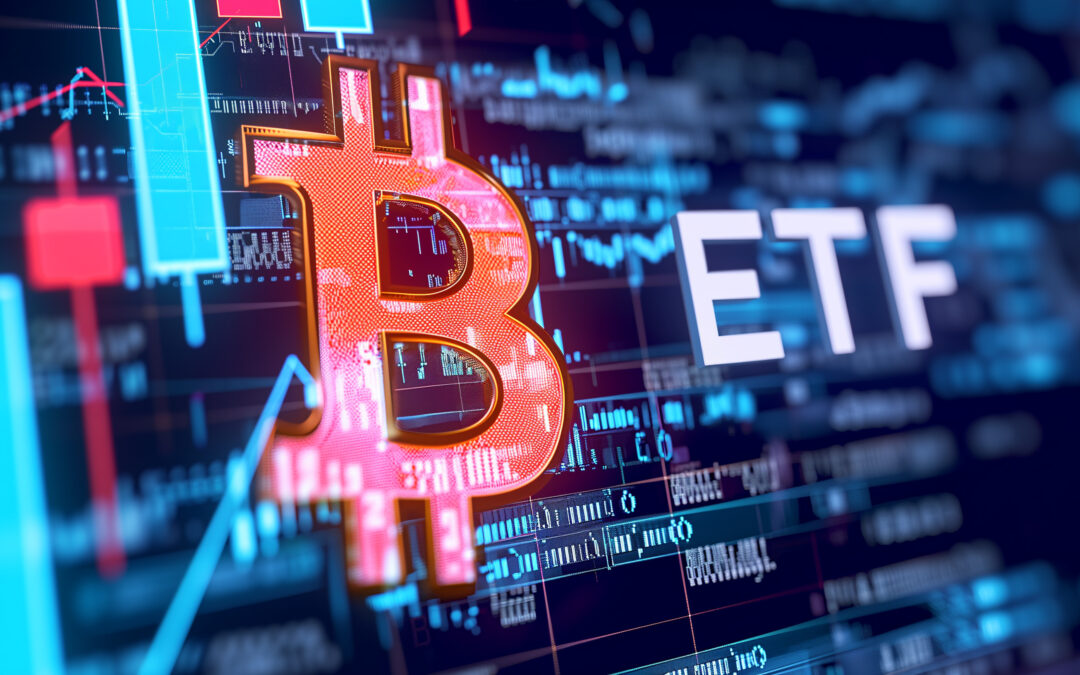In the dynamic world of cryptocurrencies, the emergence of Bitcoin Exchange-Traded Funds (ETFs) has generated attention for their potential impact on traditional investment portfolios. As the cryptocurrency landscape continues to evolve, it is important for investors to understand Bitcoin ETFs and the opportunities they may offer, as well as the risks they may present. In this comprehensive guide, we will explore the advantages and disadvantages of Bitcoin ETFs, shedding light on their role in driving adoption and shaping the future of finance.
Bitcoin ETFs represent vehicles for investors to gain exposure to Bitcoin’s price movements without directly owning the underlying asset. Unlike traditional cryptocurrency exchanges, where investors face complexities with custody and security, Bitcoin ETFs trade on regulated stock exchanges, offering familiarity and convenience. By purchasing shares of a Bitcoin ETF, investors can incorporate Bitcoin into their investment portfolios through traditional brokerage accounts.
Bitcoin ETFs offer a convenient way for a broader range of investors, including institutional investors, to gain exposure to Bitcoin. In our view, this institutional participation will likely drive capital inflows and increase liquidity, contributing to the legitimacy and stability of Bitcoin as an asset class.
While Bitcoin ETFs undoubtedly broaden access to the cryptocurrency market, they are not without their risks. Firstly, the notorious volatility of Bitcoin itself poses a significant risk to ETF investors. Fluctuations in Bitcoin’s price can translate into amplified volatility within the ETF, potentially leading to significant gains or losses for investors. It has also been noted that the SEC’s approval of these investment products does not suggest they are completely safe. According to a recent New York Times article, SEC chair Gary Gensler emphasized that the agency’s approval of the product did not constitute an endorsement of Bitcoin.
The introduction of these ETFs also brings forth new counterparty risks. Investors entrust funds with custody responsibilities and asset security, creating another middleman in the process of understanding how and where the asset is held custody. Should there be breaches in security or mismanagement on the part of the custodian, investors’ assets could be jeopardized. Fees and expenses to pay the managers associated with the ETFs must also be considered when deciding which ETF to purchase.
Moreover, the advent of Bitcoin ETFs may trigger ripple effects across the broader cryptocurrency landscape. The surge in institutional adoption and capital influxes could pave the way for market manipulation or distortions, thereby influencing the overall dynamics of the cryptocurrency market.
While we recognize the potential of bitcoin as an investment, we recommend a conservative approach when committing capital to Bitcoin ETFs. We liken Bitcoin ETFs to venture capital investments, where only a small portion of a portfolio is allocated. While there is potential for substantial value appreciation, there is also a non-negligible risk of the investment becoming nearly worthless. Our cautiousness reflects the high volatility and speculative nature of Bitcoin investments, ensuring a balance between potential gains and prudent risk management.
Bitcoin ETFs offer both advantages and disadvantages for investors seeking exposure to the crypto currency market. As with any investment, thorough research and risk evaluation are necessary before making investment decisions. If you would like to learn more contact us for a free financial assessment.
This article is prepared by Pekin Hardy Strauss, Inc. (“Pekin Hardy,” dba Pekin Hardy Strauss Wealth Management) for informational purposes only and is not intended as an offer or solicitation for business. The information and data in this article does not constitute legal, tax, accounting, investment, or other professional advice. The views expressed are those of the author(s) as of the date of publication of this article and are subject to change at any time due to changes in market or economic conditions. Pekin Hardy cannot assure that the strategies discussed herein will outperform any other investment strategy in the future. Investors should carefully consider their financial goals, risk tolerance, and investment experience before committing funds to alternative assets.

